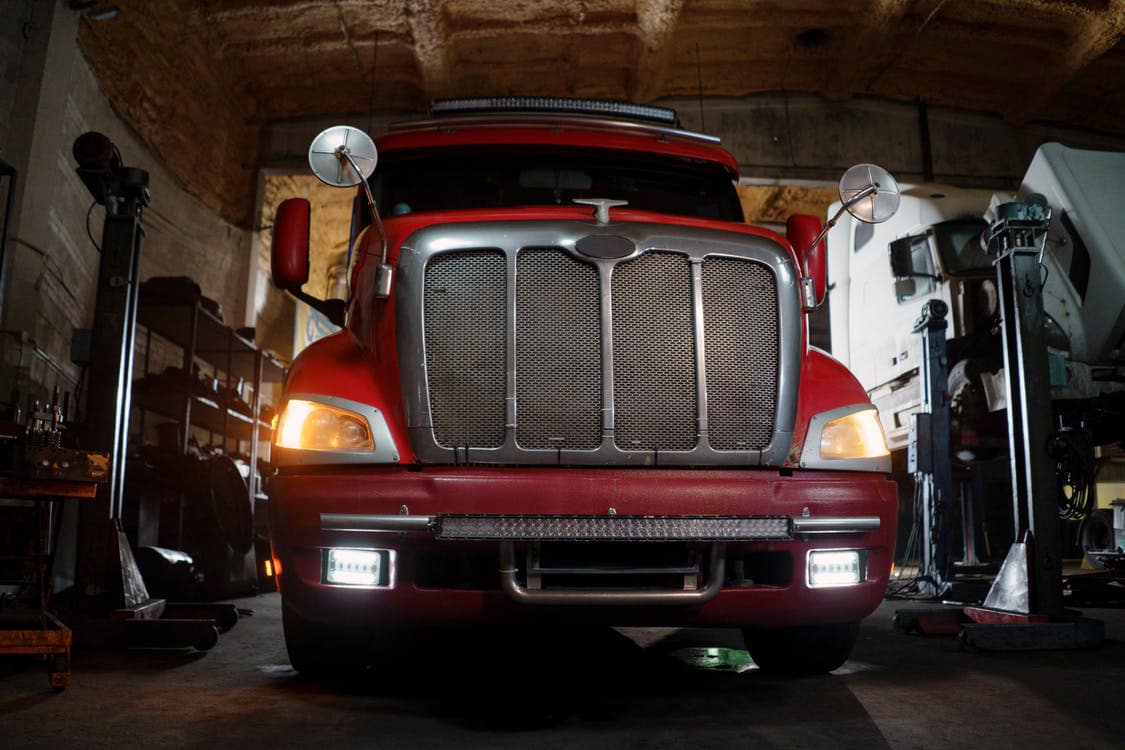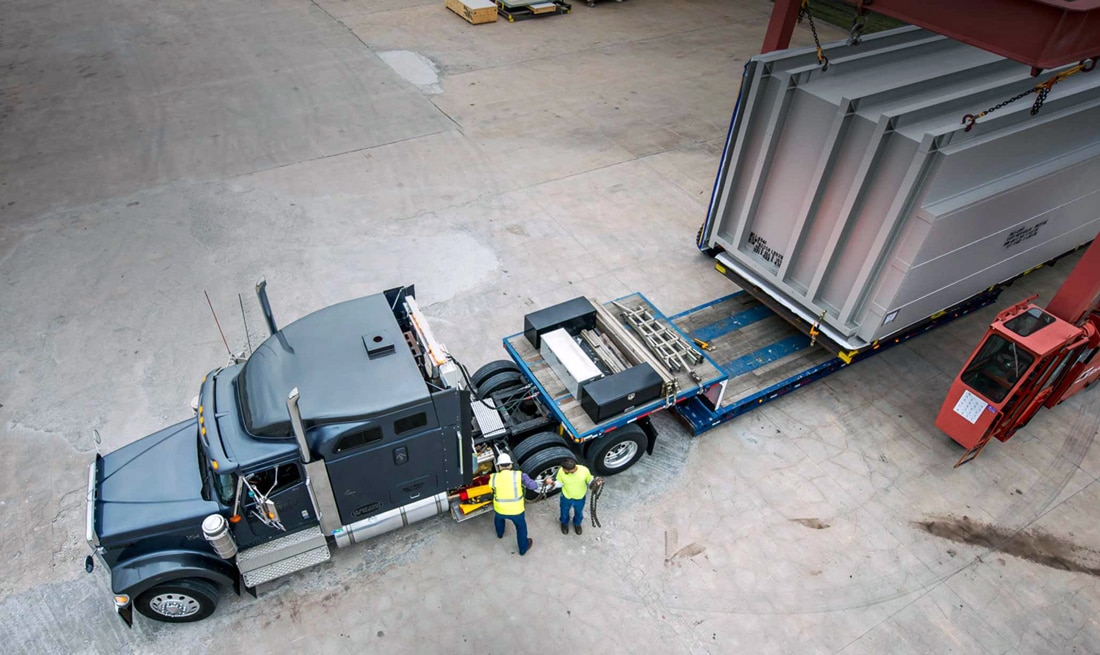If you are starting your own trucking business, one of the first decisions you will need to make during the planning stages is what structure you are going to choose for your business.
One popular option for structuring a trucking business is a limited liability company (LLC).
In this trucking LLC 101 guide, we will answer all your questions about choosing an LLC for your trucking business and go over the steps to forming your LLC.
If at any point during the process, you become overwhelmed, you can work with an LLC formation company to get the job done quickly.
What is an LLC?
A limited liability company is one of the options you can choose for the structure of your business. You can contrast it with other business structures such as a sole proprietorship or partnership.
The defining feature of an LLC is referenced in its name. If you run your business as an LLC you have limited liability for business debts or legal expenses.
In short, an LLC is a structure that allows you to protect yourself as a personal entity that is separate from your business entity.
With a sole proprietorship, you do not have that layer of protection. Instead, the law does not draw a distinction between you and your business, making you personally liable for all debts and legal costs of that business.
Why Choose an LLC for Your Trucking Business?
Trucking is a business where a lot can go wrong. That is why trucking companies need fairly extensive insurance to operate.
Imagine the following situations:
- One of your workers is injured on the job while loading heavy freight or unloading it.
- An accident on the highway destroys your truck and all the expensive cargo you were hauling.
- One of your truckers causes a multi-vehicle collision.
- A trucker working for you could get stuck in a traffic jam as a result of a wreck up the highway. While they wait for it to clear, their freight could spoil.
Obviously, you are going to do all you can to avoid scenarios like these through proper hiring and training procedures. But still, sometimes things just happen (as in our last example). And when they do, the last thing you want is to be personally liable.
Benefits of Operating Your Truck Business as an LLC
- You can avoid becoming personally liable for your business’s debts or legal costs.
- Once you form your business as an LLC in your primary state, you will find it fast and easy to file as an LLC in additional states in which you operate.
- It is simpler to form and run an LLC than it is to form and run a corporation.
- You still have the option of choosing a corporate tax status.
- Since you are keeping your business expenses separate from your personal expenses while operating as an LLC, it is easier for you to identify potential tax write-offs for your trucking company.
- You can lease personal property to your own LLC (such as a vehicle).
- LLC looks like a more “formal” and “established” status for a company than “sole proprietorship” to a lot of potential customers and clients. That is not truly the case; sole proprietorships are just as legitimate as LLCs. But perception matters when you want people to contract your trucking business.
Basic Steps for How to Start Your Own Trucking Company

While our focus is on forming an LLC in this post, it might be helpful to know where that falls in the overall process of beginning your own trucking company.
So, let’s quickly go over the basic steps.
1. Create your business plan.
2. Choose a structure for your company (like an LLC) and legally register it.
3. Get your permits and licenses.
4. Purchase or lease vehicles and any other equipment and supplies you will need for your business.
6. Start looking for loads to haul.
7. Figure out how you will handle accounting and taxes.
8. Begin claiming freight contracts.
As you can see, you will not get very far in the process of starting your trucking business without forming your LLC. So, let’s go over what is involved.
How to Form a Trucking Company LLC
The easiest way to create an LLC is to work with an LLC formation service. This is our recommendation, since it allows you to focus on the many other steps involved in starting up a trucking company. But if you were to do it all on your own, here is what you would need to do.
1. Decide where you will form your LLC.
In most cases, you are going to form your LLC in the state where you reside. This, presumably, is also the state where you are going to be operating your business out of.
2. Choose a name for your business.
Think carefully about this step, as it is going to be the biggest part of your branding. Come up with a name that is catchy, easy to spell, and easy to remember.
3. Get a registered agent.
When you operate as an LLC, you need what is called an “LLC registered agent.” A registered agent can be either of the following:
- A business entity
- An individual
Other names for a registered agent include a “resident agent” or a “statutory agent.”
The job of a registered agent is to act as a go-between for your company and any government authorities that may need to communicate with you. The LLC may also receive correspondence of a legal nature.
If you do not have a registered agent, you cannot operate as an LLC, plain and simple.
If you wish, you can actually list yourself as your registered agent, or even someone within your employ. Your lawyer is another possibility. Basically, anyone you trust with documents for your LLC can act as a registered agent.
Your registered agent does need to be located in your state, and they must have a street address. A P.O. box is not acceptable.
They also need to be at the street address listed. If they are elsewhere during standard business hours, they will not be available to receive correspondence for you.
You can see why this could be an issue, if, say, you want to list yourself, but you also plan to drive a truck for your business. You will not be where you need to be in order to act as a registered agent.
What if you do not know anyone who is willing and able to serve as your registered agent? At that point, you can consider hiring somebody to serve in this role. Usually, you will submit a payment once a year to have this person act on your behalf.
4. File the Articles of Organization.
The next step is to file what is called the “Articles of Organization” with your state. This is your registration document. Sometimes, it is referred to as a “Certificate of Formation” or as a “Certificate of Organization.”
5. Put together your Operating Agreement.
The next thing you are going to need is an “operating agreement” for your LLC. This document explains what is expected of members of the LLC.
Whether or not this is absolutely necessary comes down to where you are operating and how you are structuring your LLC internally.
If you register your LLC in California, Maine, Delaware, Missouri, New York or Nebraska, then an operating agreement is a legal requirement.
In other states, it is optional. But if your LLC includes multiple members (i.e. partners), then you are going to want one for sure so that everybody is clear on what they are responsible for in the operation of the business.
What if you are the only member? You probably should still make an operating agreement, even if your state does not mandate it. Doing so may have legal benefits later down the road.
Your operating agreement should cover topics such as organization, membership changes, distributions, capital contributions, management, voting, and dissolution.
6. Apply for an EIN.
Next comes a step that you would need to do regardless of whether or not you decided to form an LLC, and that is to apply for an employer identification number (EIN).
Your EIN plays the same role for your company that your social security number does in identifying you as an individual. You can use your EIN for tax purposes.
One nice thing about having an EIN is that you can often use it in lieu of your SSN when dealing with other business entities and individuals.
You can apply quickly and easily for your EIN through the IRS, and you do not need to pay a dime for it.
Frequently Asked Questions About Trucking Company LLC Formation
Q: What does it cost to form my LLC for trucking?
A: When you form an LLC, you will need to pay a filing fee with your state. In some states, this is as inexpensive as $40. In other states, it can cost as much as $500.
Q: Should my trucking company be an LLC or corporation?
A: If you want to keep your formation process simple and fast, you will want to pick an LLC rather than a corporation. Remember, corporate tax status is still available to you when you are running an LLC, so you can have the best of both worlds.
If you want to issue stocks and shares in your company, a corporation might be worth considering. But LLC will be ideal for most small trucking businesses.
Q: How will my trucking LLC be taxed?
A: That is up to you. By default, your single member LLC will be taxed like a sole proprietorship, or your multi-member LLC will be taxed like a partnership. But you can choose for your LLC to be taxed like an S Corp or C Corp. You will need to look into the pros and cons of each to figure out what makes sense for your business.
Q: Where can I get help forming an LLC for my trucking company?
A; An LLC formation agency can make it a breeze to get started (see below).
Form Your Trucking Company LLC the Fast and Easy Way
When you are trying to start your own trucking company, the last thing you want to do is get bogged down in the steps and paperwork involved in forming an LLC.
The simplest way to shortcut through the whole process is to work with an LLC formation agency.
This agency can handle all the steps for you, and can even act as your registered agent.
To form your trucking company LLC now, click the link below to visit our recommended LLC formation agency.







